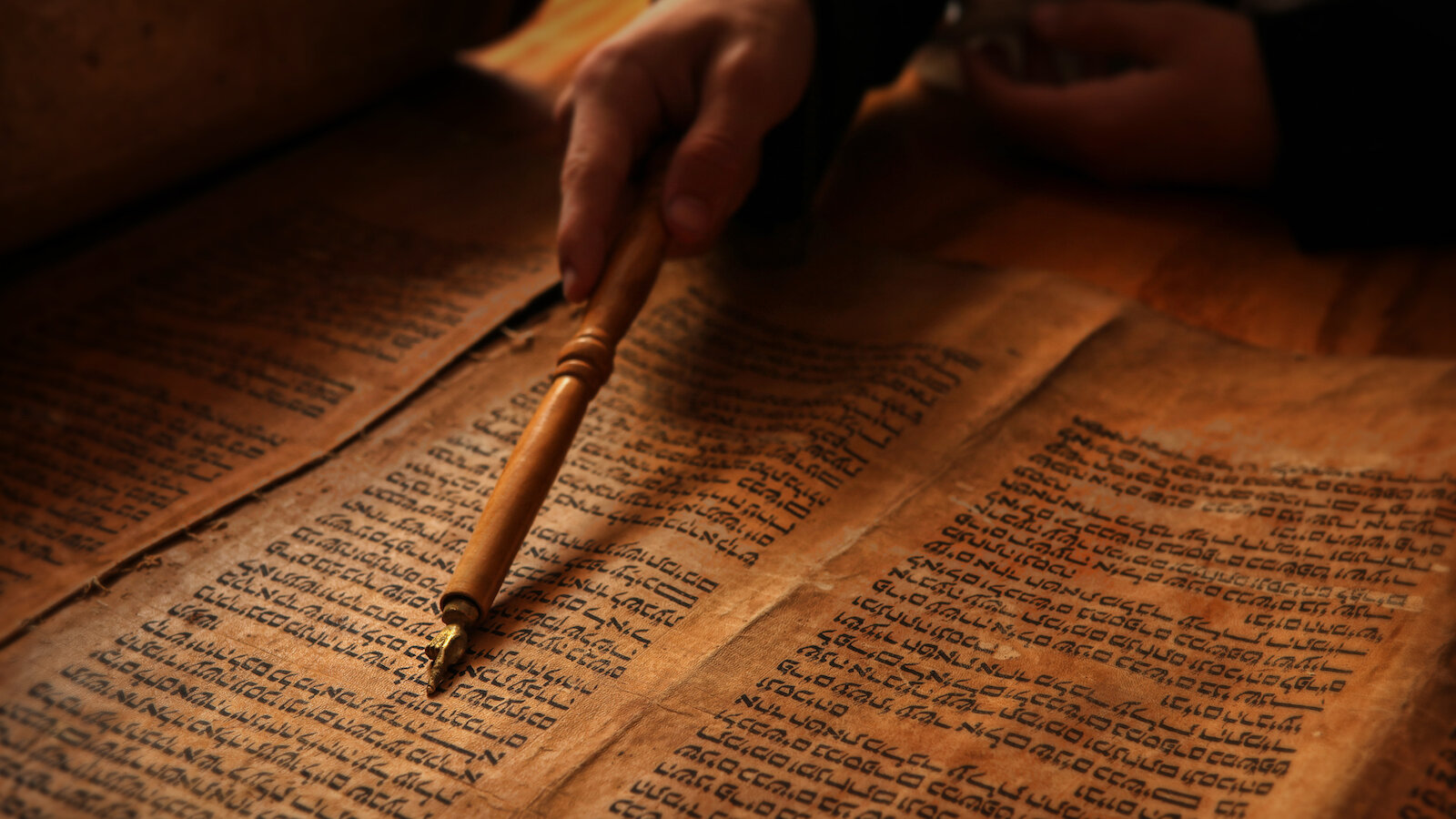
Modern-day scribes telling stories.
(don’t worry, it’s in English!)
To Tree Or Not To Tree
It’s also undeniable that the origins of the Christmas tree (or bringing evergreen branches into the home) are pagan through and through. This practice goes as far back as Egyptian worship of the sun god, Ra, as well as its connections to the pagan festival/ritual of Winter Solstice. The celebration with evergreen was in place because these were the “gods” of fertility and agriculture. Ritual with evergreens was part of imploring and appeasing them to bring about “fertility” and harvest in the spring.
Why Jewish People Do Not Believe in Jesus (A History Of Anti-Semitism In The Church)
It is no secret that the Jews have been persecuted throughout history. However, what is less well-known is why Jewish people do not believe in Jesus, despite the fact that he was himself a Jew. In this blog post, we will take a look at some of the historical barriers that have prevented the Jewish people from believing in Jesus, largely due to anti-Semitism and persecution at the hands of Christians.
Yes, we said Christians. Painfully, members of the Christian faith have often persecuted Jews the most, even though Christianity has its roots in Judaism.
Jeremiah’s Warning, Israel’s Hope
What stands out is Jeremiah’s purpose of encouraging repentance and faith by showing God’s faithfulness to His promises to Israel in the form of both discipline and restoration. In Jeremiah 29:4-10, the Lord is speaking to the exiles who have gone into Babylonian captivity because of their disobedience, idolatry, and rejection of God’s commands.
Watching Your Sin Leave The Camp
Yom Kippur, or the Day of Atonement, is among the most sacred. You can find the command on how God told the Israelites to observe this day in Leviticus 16. This was the only day the high priest could enter the Holy of Holies.
Can you imagine how heavy the sense of sin and unworthiness must have been for him? To know that he was entering the presence of a holy God on behalf of an entire nation who had sinned? And yet, every year, without fail, he went in.
Rethinking Rosh HaShanah
Rosh HaShanah is one of the biggest holidays on the Jewish calendar and is the start of the High Holy Days season. Synagogues are packed with Jewish people today, gathered to hear the blowing of the shofar and beginning 10 Days of Awe and repentance, hoping they will be inscribed in the Book of Life for one more year.
A New Way Of Looking At An Old Story: Why the Jewishness of Jesus Matters
Christians have inherited this revised picture of Jesus, a non-Jewish Jesus. It's all that has ever been presented, from the flannel graphs to the Christian cartoons, and so we don't really question it.
We need to uncover the original and true representation because if we want to know, present, and represent Jesus properly, it’s vital that our picture of Him is accurate. It is not a matter of adding a layer of Jewish culture but of uncovering a truer picture of Jesus. And that accuracy comes with an understanding of the Jewish Jesus, who He was set in that culture and that time. The Jewishness of the gospel needs to be restored.
Are Jewish People Who Believe In Jesus Still Jewish?
The assumption is always that when a Jew believes in Jesus, they are no longer Jewish. But this simply isn't the case. Faith in Jesus doesn't make someone any less Jewish. In fact, for many of us, our faith in Jesus has actually made us more Jewish.
But this misunderstanding, on both sides, is what has kept Christians from intentionally reaching out to Jewish people and what has kept Jews from understanding that Jesus is for them. The offer on the table for the Jewish people is that if you want to come to Jesus (the Jewish Messiah), you essentially have to switch teams, put on a new jersey, and go to the other clubhouse.
A Chosen People - God’s Eternal Relationship With Israel
We jokingly say that the Jewish people are just like everyone else in the world, only more so. It is not that we are better than anyone else, or smarter, or more numerous. In fact, our “chosenness” is something that most Jews would like to understand better. I certainly had no clue what being chosen meant. It didn’t always seem like a great deal to be chosen.
A New Day: The Feast Of First Fruits
This day changes history. You may call it Easter, or Resurrection Day, but Biblically this was known as the Feast of First Fruits, Yom HaBikkurim, and this was the command from Leviticus 23:
"Then the Lord spoke to Moses, saying, 'Speak to the sons of Israel and say to them, ‘When you enter the land which I am going to give to you and reap its harvest, then you shall bring in the sheaf of the first fruits of your harvest to the priest. He shall wave the sheaf before the Lord for you to be accepted; on the day after the sabbath the priest shall wave it.'" - Leviticus 23:9-11
For the Jewish followers surrounding Jesus, they had a rhythm oriented around the last day of the week, the Sabbath. Seventh day rest. The Sabbath has these archaic tones, embedded in the people, reminding them of their ancestral call to stop their work, trust in the provision of God, and enjoy Him. Even more deeply steeped in this tradition was a call to remember, that on that first, seventh day, God ceased from His work, in the holy temple of Eden, and communed with Adam and Eve.
Passion Week Through Jewish Eyes: The Testing BY The Lamb Of God
SO, four times Yeshua is confronted by the religious leaders, and four times He answers and shows Himself to be the perfect Lamb of God without spot or blemish. Scribes, Pharisees, Sadducees, Herodians all put Him to the test.
Now He turns the tables on them and He has a question for the religious leaders…on the last day that Yeshua is speaking publicly so it’s very important to hear what He says. And His last message is about His identity, who is He?
Passion Week Through Jewish Eyes: The Testing Of The Lamb Of God: The Sadducees
A third confrontation was from the Sadducees…
This confrontation was a question of THEOLOGY. It had to do with the Resurrection.
Differences between Pharisees and Sadducees:
Pharisees: Believed in the supernatural (Angels, demons, literal resurrection)
Sadducees: Did not
Passion Week Through Jewish Eyes: The Testing Of The Lamb Of God: Pharisees And Herodians
A second confrontation was from the Pharisees and the Herodians…
This confrontation was a question of POLITICS.
You have to realize that the Pharisees and the Herodians are at opposite ends of the political spectrum.
Herodians (Jews who) supported Roman rule through the Herodian dynasty.
Pharisees did not; They hated Roman rule and the Herodian influence.
These two groups had no common ground. The fact that they would join forces to trap Yeshua tells us something of how seriously both groups viewed Him as a threat.












